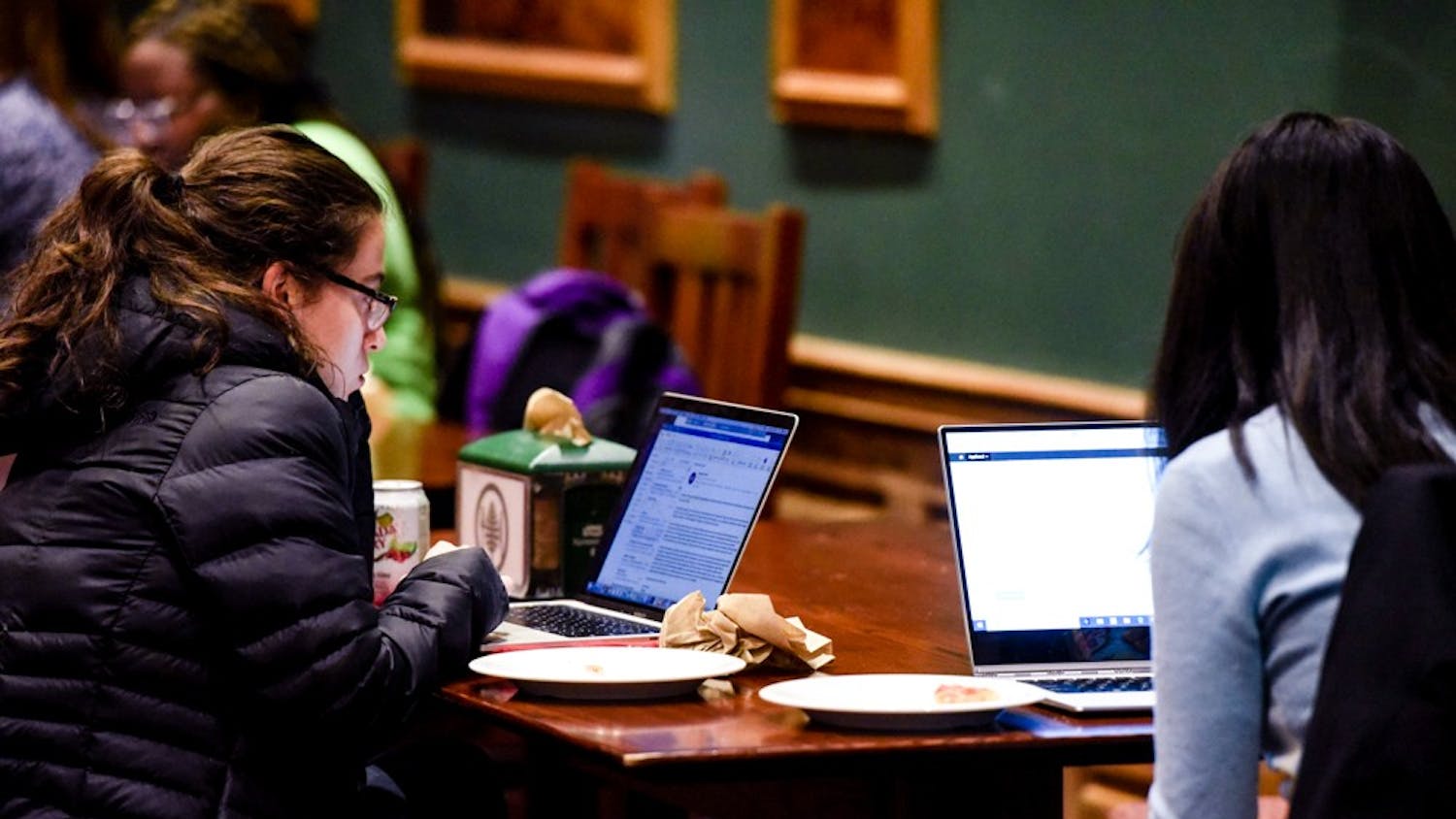Students grappling with uncertain foreign study plans amid the pandemic may soon be bracing for another blow. The College will slash funding for off-campus programs and scrap a significant number of its study abroad trips — a decision that has already sparked uproar throughout the Dartmouth community.
According to associate dean for international studies and interdisciplinary programs Dennis Washburn, the Guarini Institute’s budget will be cut by roughly 45%. While Dartmouth usually runs 42 of its 45 off-campus programs every year, it will now likely run 31 programs annually and offer 35 in total. Although not yet official, department chairs have been told by the administration to expect an announcement about significant cuts to off-campus programs within the next few weeks.
Language programs will be hit particularly hard, as several language study abroad and foreign study programs are slated to be changed to a biennial format or cut completely. According to multiple language professors, two French programs, two Spanish programs, an Italian program and a German program are among those slated to be cut.
Washburn noted that the exact budget cuts and programs affected are “still in flux” and will not be certain until Guarini’s new budget plan is finalized later in the term.
“I don’t want to see this kind of cut — nobody wants to see this,” Washburn said. “These are bad, serious cuts, but we need to fix our ongoing budget problem.” He noted that Guarini usually runs a deficit of about $600,000 per year, which fluctuates slightly based on local costs or the exchange rate of the dollar in different program locations.
According to German studies department chair Klaus Mladek, the Guarini Institute is a “relatively easy target” for budget cuts as compared to the Arts and Sciences budget because it has been “running deficits for years” due to rising legal and program costs and decreasing student participation.
“This drastic cut is sort of on the heels of a longer downward spiral,” Mladek said.
According to Spanish and Portuguese department chair Isabel Lozano-Renieblas, the institute’s struggles are “nothing new.” Lozano-Renieblas said the institute has a “structural deficit” in which its debt compounds every year, adding that it was “clear” to some faculty that cuts might be imminent.
“Some cuts seem to have been kind of snuck in as related to the pandemic but are actually related to budget issues that the College has had for years,” said Russian professor Ainsley Morse, who also sits on an interdepartmental committee that runs the off-campus program in Russia.
Washburn said that while the cuts are partially a result of a more general College budget deficit due to the pandemic, Guarini has had budgetary issues since the economic downturn in 2007 and 2008. He added that while the number of programs offered since 2008 has increased, student enrollment in programs has declined, and the budget has increased “very slightly.”
Morse expressed frustration that professors were not consulted about the program cuts and had no voice in the decision.
“The lack of transparency is one of the most frustrating aspects of this scenario,” Morse said. “I think that if faculty had been consulted [or] there was some kind of a forum to talk about all this, probably we wouldn't need to make grand gestures and protest. We could have just worked it out.”
After learning of the cuts, according to Lozano-Renieblas, the Spanish and Portugese department sent a petition to all students who had participated in its study abroad programs to ask for their continued support of the programs. As of Wednesday, the petition has over 1,000 signatures and nearly 200 student testimonials about the importance of off-campus programs.
“I think that off-campus programs are essential, it’s the core of the education at Dartmouth and many of these testimonies state that is probably the best experience in the College,” Lozano-Renieblas said.
Other departments, including the German department and the French and Italian department, have similarly sent out petitions calling for the continuation of their study abroad programs. As of Wednesday, the German department’s petition has garnered 124 signatures and more than 50 testimonials from students and alumni, while another petition circulated in the French and Italian department has received 206 signatures.
Lozano-Renieblas said that the “main ramification [of the program cuts] and the most important is the attack [on] our mission as educators of global citizens,” noting that the elimination of programs could also affect majors, minors and enrollment in certain departments. German professor Yuliya Komska said these numbers can have important implications down the line for hiring and department funding decisions.
“This is a very numbers-oriented administration,” Komska said. “So to have a situation where they're putting us in the position where the major numbers are dwindling, not because the students wanted, but because of the conditions that have been created for them and for us — that would be really bad.”
French and Italian department chair David LaGuardia wrote in an email to The Dartmouth that the College has been “slowly but systematically” cutting off-campus programs for the last decade, “at the same time that we’re being asked to foster more diversity, ‘inclusive excellence’ and global awareness.”
“It doesn’t make much sense to those of us who have spent our lives studying and teaching linguistic and cultural differences,” he wrote.
“There is essential value to spending time in another place,” Morse said. “If you really want to be good at what you're doing in terms of your study and work in another cultural context, the language stuff is really, really important.”
Morse added that she hoped the planned cuts to study abroad programs are not indicative of a broader shift by the College away from languages.
“I would be very distressed if it seemed like Dartmouth, in a systematic way, was deprioritizing language study,” Morse added.
Washburn said that the College has seen a large shift toward the social sciences and STEM since the 1980s and 1990s and a shift away from the humanities, the area in which many off-campus programs are currently focused. He said that Guarini is “trying to reset the portfolio to better match student interest” by offering programs that integrate language study with other disciplines, such as the new combined government and Russian program on which students will be able to travel to Moscow.
“We're going to continue the process of resetting the off-campus programs to look for innovative ways to do these programs in new areas, … to look at the programs we have now and look at how we can refurbish them,” he said.
For example, Guarini will soon offer a three-week, course-credit-bearing pilot program with the Asian Societies, Cultures and Languages program in which students will travel to Ho Chi Minh City, Vietnam over the break between fall and winter term to study Vietnamese environmental history. Washburn also mentioned the new interdisciplinary German and engineering program and a potential new program in Brazil that would combine Portuguese and environmental studies.
He added that off-campus programs are “here to stay long term” but that Guarini has a “short-term budget problem” that needs to be resolved.
“We don't want to be cutting what is the jewel in the crown of Dartmouth's undergraduate education,” Washburn said. “We think that by building out new kinds of programs and redoing some of the things we're already doing well, but doing them better, we can best serve the interest of students. I'm really optimistic about that.”
Correction appended (Feb. 4, 2021): A previous version of this article incorrectly stated that the committee Morse sits on is a Russian department committee. The article has been updated to reflect that the committee is interdepartmental.

Lauren ('23) is news executive editor for The Dartmouth. She is from Bethesda, Maryland, and plans to major in government and minor in public policy.




